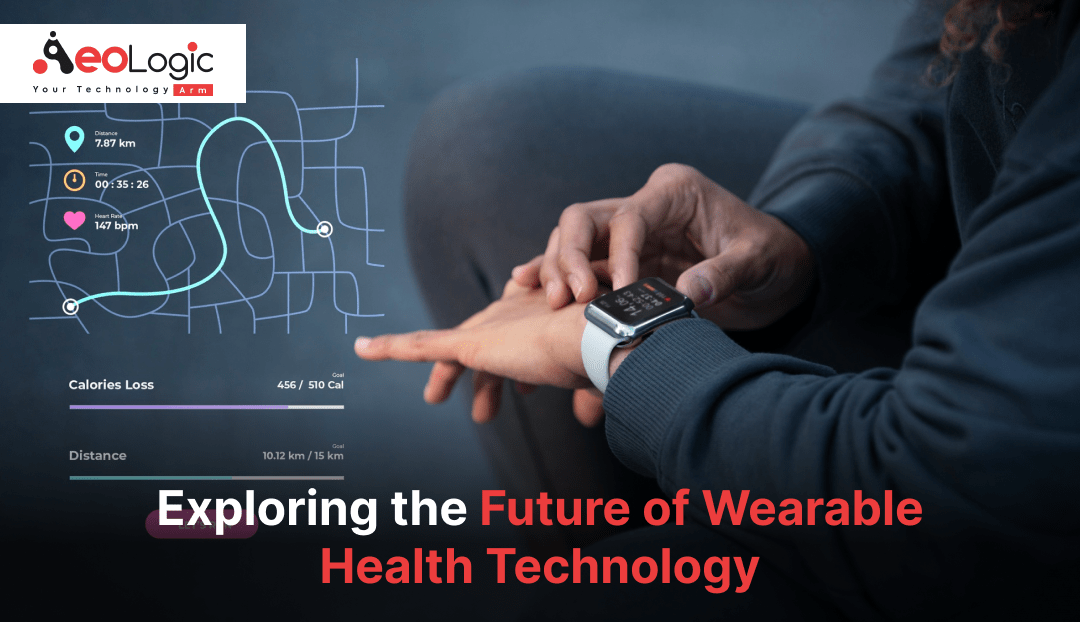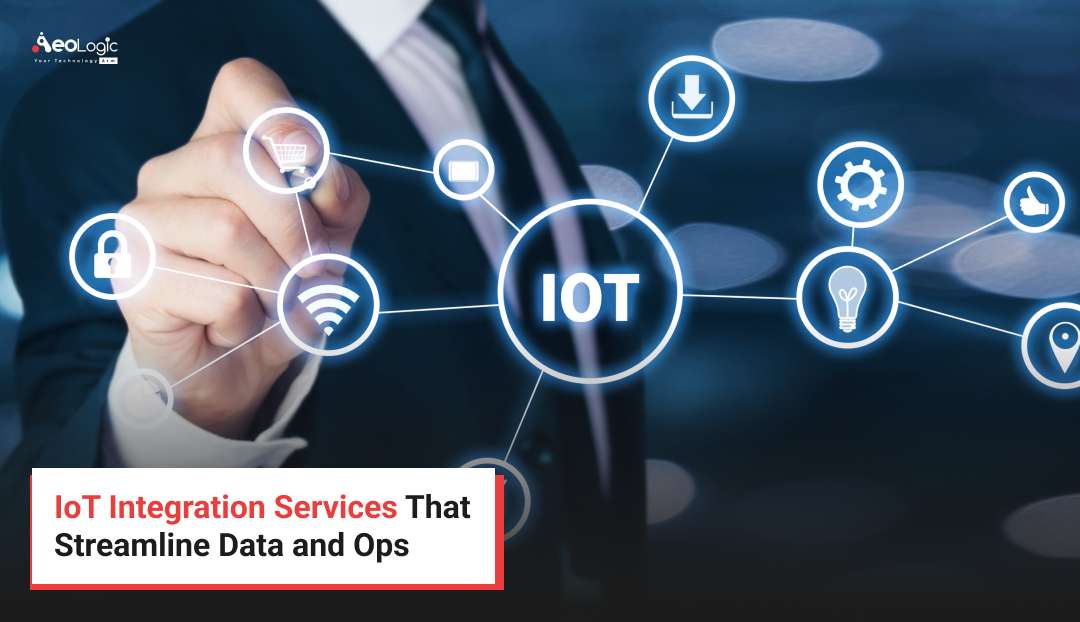The future of wearable health technology is here to revolutionize the industry. It is reshaping the landscape of healthcare, offering innovative solutions for monitoring and managing health. These devices, designed to provide real-time data on various health metrics, are leading a shift from reactive to proactive health management. Their growing importance reflects a broader transformation in how we approach health and wellness.
Also read: Track and Trace Solutions for the Pharmaceutical Industry
The Future of Wearable Health Technology
The future of wearable health technology have become central to modern healthcare. These technologies offer continuous tracking of vital signs, empowering users to manage their health more effectively. For healthcare professionals, the real-time data provided by these devices enhances decision-making and improves patient outcomes.
One notable example is wearables equipped with electrocardiograph (EKG) sensors. These devices monitor heart activity by detecting multiple physiological signals, providing detailed insights into cardiac health. This continuous monitoring allows for early detection of potential issues, which can be crucial for timely intervention and treatment.
Key Contributions of Wearable Healthcare Technology:
- Ongoing Monitoring: Wearable devices track vital signs in real time, delivering valuable health data. This continuous monitoring is crucial for managing chronic conditions and detecting health changes early.
- Empowering Users: With access to detailed health information, individuals can make informed decisions about their lifestyle and medical care. This empowerment is a significant shift from traditional healthcare models, which often rely on periodic check-ups and reactive treatments.
- Informed Decision-Making: Healthcare providers can leverage the data from wearables to make evidence-based decisions. This data-driven approach enhances patient care and can lead to better health outcomes with the help of IoT solutions.
- Specialized Monitoring: For instance, wearables with EKG capabilities offer in-depth monitoring of heart activity, detecting irregularities that might otherwise go unnoticed.
The Evolution from Fitness Trackers to Advanced Medical Devices
The future of wearable healthcare technology has been transformative. Initially designed as basic tools for tracking physical activity, modern wearables now feature advanced technologies that monitor a wide range of health metrics. This evolution has played a significant role in enhancing health outcomes and promoting preventive care.
Early fitness trackers primarily counted steps and estimated calorie burn. Today’s devices, however, offer comprehensive health monitoring. They track heart rate, sleep patterns, and even stress levels. This evolution reflects a growing understanding of how various aspects of health are interconnected and the need for more sophisticated tools to manage them effectively.
AI and Machine Learning in Wearable Healthcare Technology
The integration of artificial intelligence (AI) and machine learning into wearable health technology represents a major advancement. These technologies enable predictive analytics and personalized health insights, enhancing the capabilities of wearable devices. AI and machine learning facilitate early disease detection and support preventive healthcare strategies.
For example, AI algorithms can analyze data from wearables to identify patterns and predict potential health issues before they become serious. This capability allows for proactive interventions and personalized treatment plans. Notable statistics highlight the impact of these advancements:
- By 2029, the global market for AI automation solutions in healthcare is expected to reach USD 148 billion.
- Wearable devices are projected to reduce hospital costs by 16% over the next five years.
- 88% of healthcare providers are investing in remote patient monitoring technologies, underscoring the growing recognition of the value of wearable tech in healthcare.
These developments underscore the need for a comprehensive approach to wearable app development. Combining advanced hardware with sophisticated software is essential for collecting, analyzing, and interpreting biometric data while ensuring a seamless user experience.
Types of Wearable Healthcare Technology
Wearable technology in healthcare has expanded far beyond simple step counters. Today, a variety of devices cater to different health needs, offering diverse applications for individuals from fitness enthusiasts to those with chronic conditions.
- Fitness Trackers: Modern fitness trackers have evolved significantly. They now measure various health metrics such as heart rate, sleep quality, and even stress levels. Equipped with advanced sensors, these devices provide detailed insights into daily health and wellness, making them essential tools for those aiming to improve their fitness.
- Smartwatches and Bands: Devices like the Apple Watch have revolutionized wearable technology. These smart health bands track physical activity, monitor vital signs, and detect irregular heart rhythms. They can also sync with smartphones, offering users a comprehensive view of their health data at their fingertips.
- Wearable ECG Monitors: These advanced devices provide continuous heart rate monitoring, crucial for detecting cardiac abnormalities. For patients with heart conditions, wearable ECG monitors offer real-time data and peace of mind by monitoring heart health consistently.
- Smart Health Clothing: Smart clothing, such as sensor-embedded workout gear and sleepwear, offers a seamless way to track vital statistics. These garments measure physiological signals like heart rate, respiration rate, and body temperature, providing a holistic view of health during daily activities.
- Biosensors and Implants: Biosensors and implants are advanced wearables designed for continuous and often invasive health monitoring. They can track parameters like glucose levels in diabetes patients or cardiac function in heart disease patients, enabling proactive health management.
Benefits of Wearable Technology in Healthcare
Wearable technology offers a range of benefits that significantly impact healthcare:
- Continuous Monitoring: Wearable devices provide 24/7 tracking of health metrics, such as heart rate, blood pressure, and sleep patterns. This constant vigilance helps in the early detection of potential health issues, allowing for timely intervention.
- Preventive Healthcare: By encouraging health-focused behaviors, wearables help reduce hospital visits and readmissions. This proactive approach to health management can prevent diseases from developing or worsening, ultimately improving overall health outcomes.
- Patient Empowerment: Wearable technology empowers individuals to take charge of their health. Access to personalized health data enables users to make informed decisions about their lifestyle and medical care. Additionally, wearables can motivate users to adopt healthier habits, contributing to improved well-being.
- Data-Driven Decisions: Healthcare providers can utilize the data from wearables to create personalized treatment plans. This data-driven approach enhances patient care by providing a comprehensive view of the patient’s health and facilitating more informed decisions.
Also read: Advanced Pharmaceutical Traceability Solutions to Prevent Counterfeiting
Conclusion
Wearable technology has advanced from being a trendy gadget to becoming a crucial component of modern healthcare. As technology continues to progress, wearables will play an increasingly significant role in monitoring, diagnosing, and treating various health conditions. Their impact will extend beyond healthcare, improving efficiency, safety, and productivity in other sectors as well. The future promises a continued integration of wearables into daily life, enhancing our health, productivity, and overall quality of life.







